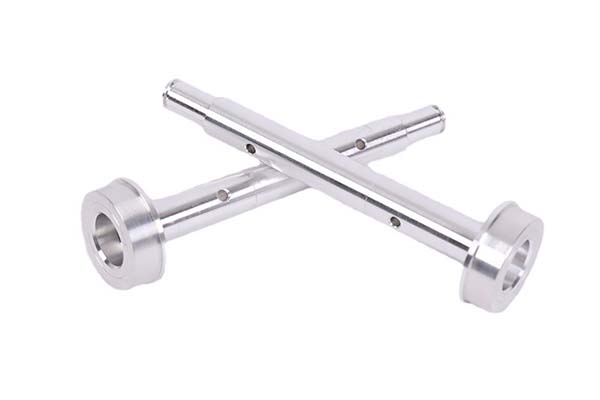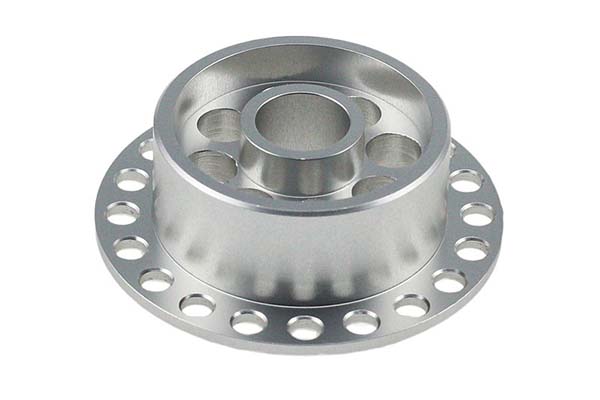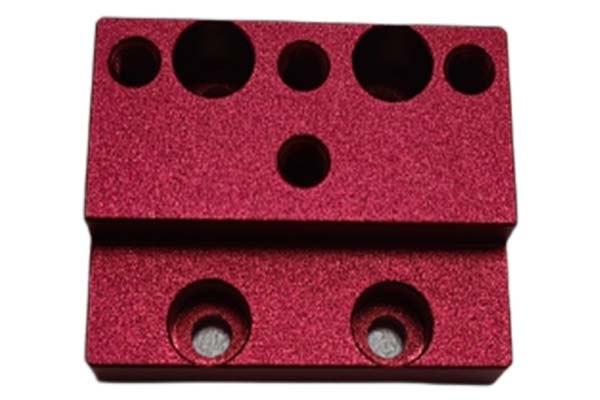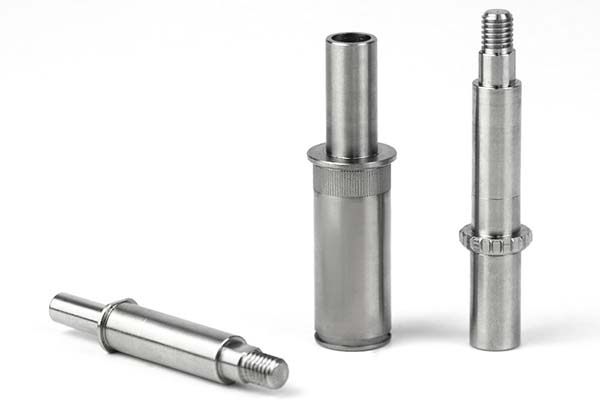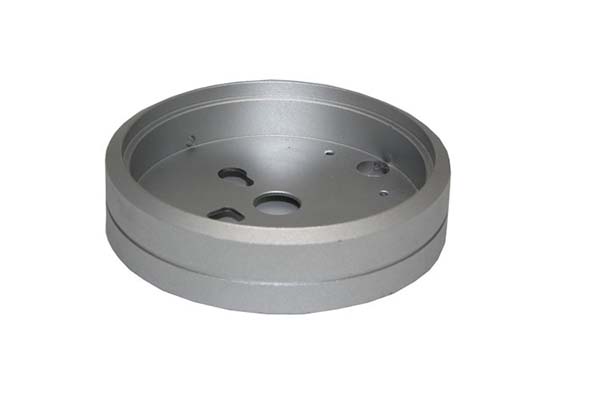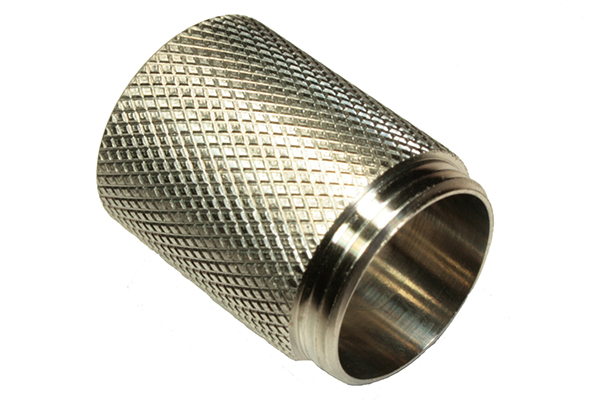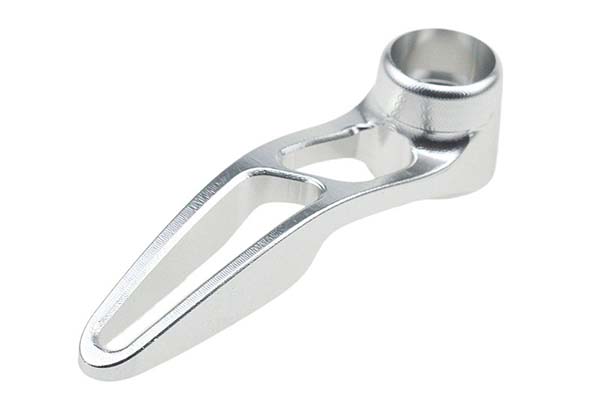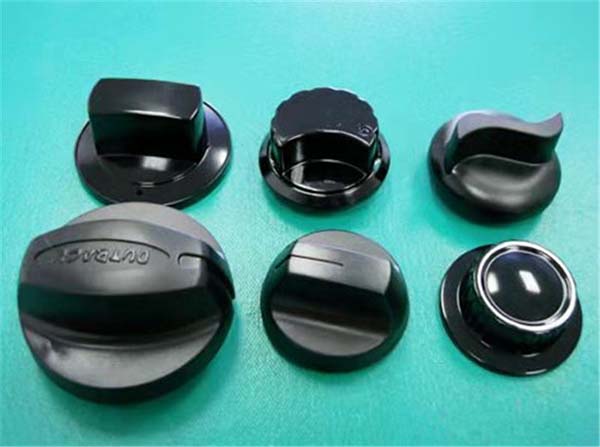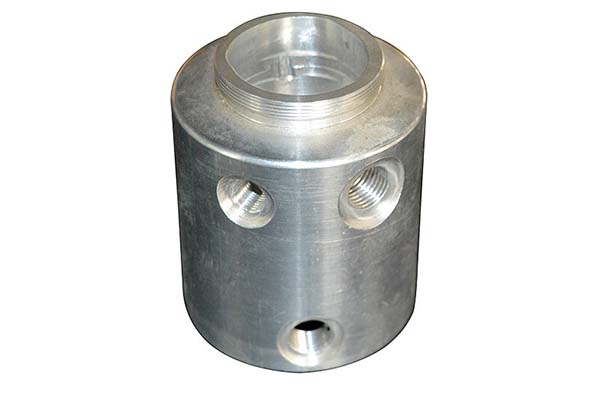Introduction
The Significance of CNC Machined Components
In the modern manufacturing landscape, CNC (Computer Numerical Control) machined components have emerged as the cornerstone of precision engineering. These components are the result of a highly automated and precise manufacturing process, where computer - controlled machines execute complex operations with micron - level accuracy.
CNC machined components are ubiquitous across a vast array of industries. In the aerospace industry, for instance, they are used to create critical parts of aircraft engines, such as turbine blades. These blades must withstand extreme temperatures and mechanical stresses, and the precision offered by CNC machining ensures that each blade is identical in shape and dimension, thus optimizing engine performance and safety. According to a report by the International Air Transport Association (IATA), the demand for more fuel - efficient and reliable aircraft engines has led to a 15% annual growth in the use of CNC machined components in aerospace manufacturing over the past five years.
The automotive sector also heavily relies on CNC machined components. From engine blocks to transmission gears, the precision manufacturing of these parts is crucial for the overall performance, durability, and safety of vehicles. A study by the Society of Automotive Engineers (SAE) shows that vehicles with CNC - machined engine components have a 10 - 15% improvement in fuel efficiency compared to those with components made by traditional manufacturing methods. This is because the tight tolerances achievable through CNC machining reduce friction within the engine, leading to better energy utilization.
In the medical device industry, CNC machined components are used to fabricate implants, surgical instruments, and diagnostic equipment. The high precision and repeatability of CNC machining are essential to meet the strict quality and safety standards in healthcare. For Yigu Technology example, hip implants produced by CNC machining can be customized to fit the unique anatomy of each patient, improving the success rate of surgeries and the quality of life for patients.
Given the integral role of CNC machined components in these industries, partnering with reliable CNC machined components manufacturers becomes a strategic imperative for businesses aiming to maintain high - quality production, gain a competitive edge, and keep up with the ever - evolving demands of the market.
Precision and Quality Assurance
Advanced Technology and Equipment
CNC machined components manufacturers invest heavily in advanced technology and state - of - the - art equipment to ensure the highest level of precision. High - end CNC machining centers are equipped with multi - axis systems, such as 5 - axis or even 7 - axis machines. For example, a typical 5 - axis CNC machining center can simultaneously control the movement of the workpiece and the cutting tool along five different axes (X, Y, Z linear axes, and two rotational axes). This allows for the creation of complex geometries with a single setup, reducing errors that could occur from multiple setups in traditional machining.
These machines also feature high - speed spindles. Some modern spindles can reach speeds of up to 40,000 RPM (Revolutions Per Minute). High - speed spindles enable faster material removal rates while maintaining high precision. In addition, they are often equipped with advanced servo - motor systems. These servo - motors can achieve positioning accuracies as high as ±0.001mm. This means that when the machine is instructed to move the cutting tool to a specific position, it can do so with an error of no more than 1 micron, ensuring that each component is machined to the exact specifications.
Stringent Quality Control Measures
Manufacturers follow a comprehensive and stringent quality control process. At the raw material stage, they conduct thorough inspections. For metal materials, they use techniques such as spectrometric analysis to verify the chemical composition. For Yigu Technology example, if they are using aluminum alloy, they ensure that the percentages of elements like silicon, magnesium, and copper are within the specified ranges. They also measure the material's hardness using a hardness tester to ensure it meets the required mechanical properties.
During the machining process, in - process inspections are carried out regularly. Operators use precision measuring tools such as coordinate measuring machines (CMMs). A CMM can accurately measure the dimensions of a partially - machined component, checking for any deviations from the design specifications. For example, if a component has a critical diameter dimension specified as 20 ± 0.05mm, the CMM can measure the actual diameter with an accuracy of up to 0.001mm and immediately alert the operator if the measurement is outside the tolerance range.
Once the components are fully machined, final inspections are even more rigorous. In addition to dimensional checks, surface finish inspections are also crucial. Manufacturers use surface roughness testers to measure the surface roughness of the components. For components used in high - precision applications like aerospace, the surface roughness may need to be as low as Ra 0.1μm (arithmetical mean deviation of the assessed profile), and the final inspection ensures that this requirement is met.
Cost - Efficiency
Economies of Scale
CNC machined components manufacturers can achieve significant economies of scale. When producing in large volumes, the fixed costs associated with setting up the CNC machines, such as equipment depreciation, software licensing, and initial setup labor, are spread over a larger number of units.
For example, let's assume a manufacturer has a fixed cost of \(10,000 for setting up a CNC machining operation to produce a specific component. If they produce 100 units, the fixed - cost per unit is \)100 (\(10,000 / 100). However, if the production volume increases to 1000 units, the fixed - cost per unit drops to \)10 ($10,000 / 1000).
The following Yigu Technology chart clearly shows the relationship between the order quantity and the cost per unit:
| Order Quantity | Fixed Cost per Unit ($) | Variable Cost per Unit ($) | Total Cost per Unit ($) |
| 100 | 100 | 50 | 150 |
| 500 | 20 | 50 | 70 |
| 1000 | 10 | 50 | 60 |
| 5000 | 2 | 50 | 52 |
As the order quantity increases, the impact of the fixed cost on the total cost per unit becomes less significant, resulting in a lower overall cost per component. This cost - efficiency advantage allows businesses to purchase CNC machined components at a more competitive price when ordering in bulk, which is especially beneficial for large - scale production industries like automotive and consumer electronics manufacturing.
Minimizing Waste
CNC machining is highly efficient in terms of material utilization, significantly reducing waste compared to traditional machining methods. In traditional machining, such as manual milling or turning, there is often a lack of precise control over the cutting process. This can lead to over - cutting or inaccurate cuts, resulting in a substantial amount of wasted material.
In contrast, CNC machines operate based on precise computer - generated instructions. They can execute complex cutting paths with high accuracy, ensuring that only the necessary amount of material is removed. For instance, in a study comparing traditional milling and CNC milling for producing aluminum components, it was found that traditional milling had a material utilization rate of around 40 - 60%. This means that 40 - 60% of the initial aluminum material was discarded as waste. However, with CNC milling, the material utilization rate could be increased to 80 - 90%.
Let's take an example of a company that produces 10,000 metal components. If each component requires 1 kg of raw material, and the traditional machining method has a 50% material utilization rate, they would need to purchase 20,000 kg of raw material, with 10,000 kg being wasted. With CNC machining, which has an 85% material utilization rate, they would only need to purchase approximately 11,765 kg of raw material (10,000 / 0.85), saving about 8,235 kg of material. This not only reduces the cost of raw materials but also has a positive environmental impact by minimizing waste.
Customization Capabilities
Meeting Diverse Requirements
CNC machined components manufacturers have the ability to meet the diverse requirements of different industries. In the aerospace industry, components often need to be lightweight yet extremely strong to withstand the harsh conditions of flight. For example, components made from titanium alloys are commonly used in aircraft structures. These alloys have a high strength - to - weight ratio, but they are also very difficult to machine. CNC manufacturers use specialized cutting tools and techniques to precisely machine titanium components, ensuring that they meet the strict dimensional and performance requirements of aerospace applications.
In the medical industry, components such as orthopedic implants require a high degree of customization. Each patient's anatomy is unique, so implants need to be tailored to fit perfectly. CNC machined components manufacturers can work with medical device companies to create patient - specific implants. They use advanced 3D scanning technology to create a digital model of the patient's anatomy, and then use this model to program the CNC machines to produce implants with precise shapes and dimensions.
The electronics industry also has unique requirements for CNC machined components. For example, components for smartphones and tablets need to be small, lightweight, and have high - precision surface finishes to ensure proper functionality and aesthetics. Manufacturers can use high - speed CNC milling machines to produce small, intricate components with tight tolerances, such as the aluminum alloy frames for mobile devices.
Design and Engineering Support
Many CNC machined components manufacturers offer comprehensive design and engineering support services. They have in - house teams of experienced engineers who are proficient in using advanced design software such as CAD (Computer - Aided Design) and CAM (Computer - Aided Manufacturing).
When a client has a new product idea, the manufacturer's engineers can collaborate with them from the initial design stage. They can provide valuable insights based on their knowledge of materials, manufacturing processes, and industry standards. For instance, if a client is designing a new automotive engine component, the engineer might suggest changes to the design to make it more manufacturable using CNC machining. This could involve optimizing the geometry to reduce the number of machining operations, or choosing a more suitable material that can be easily machined while still meeting the performance requirements.
In addition, manufacturers can perform simulations using CAE (Computer - Aided Engineering) software. For example, they can simulate the stress and strain on a component under different operating conditions to ensure its structural integrity. This helps clients to identify and address potential design flaws before the actual production process begins, saving both time and cost. The following table shows the benefits of design and engineering support provided by CNC manufacturers:
| Support Service | Benefit |
| CAD/CAM Design | Allows for the creation of highly detailed and accurate 3D models, which can be easily modified and optimized |
| Material Selection Advice | Ensures that the chosen material meets the component's performance requirements while being suitable for CNC machining |
| CAE Simulations | Helps to predict the component's performance under real - world conditions, reducing the risk of failures |
| Design for Manufacturability (DFM) | Optimizes the design to make it easier and more cost - effective to produce using CNC machining |
Yigu Technology's View
As a non - standard plastic metal products custom supplier, Yigu Technology highly values the cooperation with CNC machined components manufacturers. The precision - control capabilities of these manufacturers are crucial. For us, ensuring that the non - standard components meet exact specifications is a top priority, and CNC manufacturers' micron - level precision helps us achieve this.
Cost optimization is another aspect we focus on. By partnering with CNC manufacturers who can achieve economies of scale and minimize waste, we can offer more competitive prices to our customers.
Customization is also key. Our customers often have unique product requirements. The customization capabilities of CNC machined components manufacturers, along with their design and engineering support, enable us to jointly develop high - quality products that precisely meet customer needs. We believe that close collaboration with reliable CNC manufacturers is the foundation for providing excellent products and services in the non - standard plastic metal products market.
FAQ
What is the typical lead time for CNC machined components?
The typical lead time for CNC machined components can vary widely, usually ranging from a few days to several weeks. For small - scale orders with standard designs and readily - available materials, the lead time might be as short as 3 - 5 days. This is because the programming and setup processes can be completed relatively quickly, and there are no significant delays in material procurement.
However, for large - scale production runs, complex designs, or components that require hard - to - obtain materials, the lead time can extend to 2 - 4 weeks or even longer. Complex designs often need more time for programming and fine - tuning the CNC machines to ensure accurate machining. Additionally, if the required materials are not in stock and need to be sourced from external suppliers, it can add significant time to the overall production schedule.
How can I ensure the quality of CNC machined components?
To ensure the quality of CNC machined components, start by choosing a manufacturer with a proven track record and relevant certifications, such as ISO 9001. Request to see their quality control procedures and inspection reports from previous projects. A reliable manufacturer should conduct in - process inspections using precision measuring tools like coordinate measuring machines (CMMs) and perform final inspections to check for dimensional accuracy, surface finish, and material integrity.
You can also provide clear and detailed design specifications to the manufacturer. This includes tolerances, material requirements, and surface finish standards. Regular communication with the manufacturer during the production process can help address any potential issues promptly. Additionally, consider having a sample produced and thoroughly tested before proceeding with a full - scale production order.
Can CNC machined components be customized for unique applications?
Yes, CNC machined components can be highly customized for unique applications. The customization process typically begins with a detailed design discussion between you and the manufacturer. You'll provide your design requirements, which may include specific dimensions, shapes, material preferences, and performance criteria.
The manufacturer's engineering team will then use CAD/CAM software to create a digital model of the component. This model can be adjusted and optimized based on factors such as manufacturability and cost - effectiveness. Once the design is finalized, the CNC machines are programmed according to the digital model to produce the customized components.
During the customization process, it's important to communicate openly with the manufacturer about any changes or special requirements. Also, be aware that highly customized components may have longer lead times and higher costs compared to standard components due to the additional engineering and production efforts involved.
Conclusion
In conclusion, partnering with CNC machined components manufacturers offers a plethora of benefits that are essential for businesses across various industries. The precision and quality assurance provided by advanced technology and strict quality control measures ensure that the components meet the highest standards, which is crucial for the performance and safety of end - products.
Cost - efficiency, achieved through economies of scale and minimized waste, allows businesses to optimize their production costs without sacrificing quality. This is especially important in a highly competitive market where cost - effectiveness can be a significant differentiator.
The customization capabilities of CNC machined components manufacturers, along with their design and engineering support, enable businesses to bring innovative products to the market that meet the unique needs of their customers. This not only enhances customer satisfaction but also helps businesses gain a competitive edge.
Time - saving aspects, such as shortened lead times and just - in - time delivery, are vital for supply chain management. They enable businesses to respond quickly to market demands, reduce inventory holding costs, and improve overall operational efficiency.
If you are looking to enhance the quality, cost - effectiveness, and timeliness of your product manufacturing, don't hesitate to reach out to professional CNC machined components manufacturers. Their expertise and capabilities can be the key to unlocking your business's full potential in the manufacturing arena.
